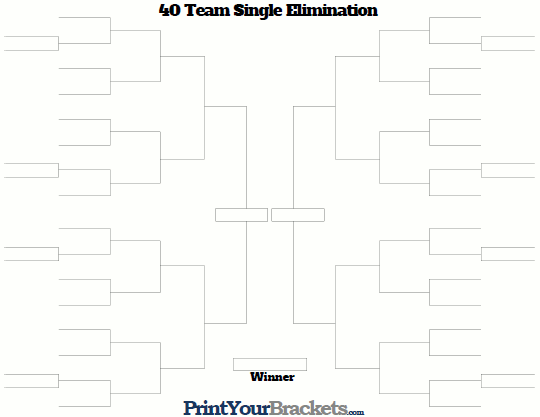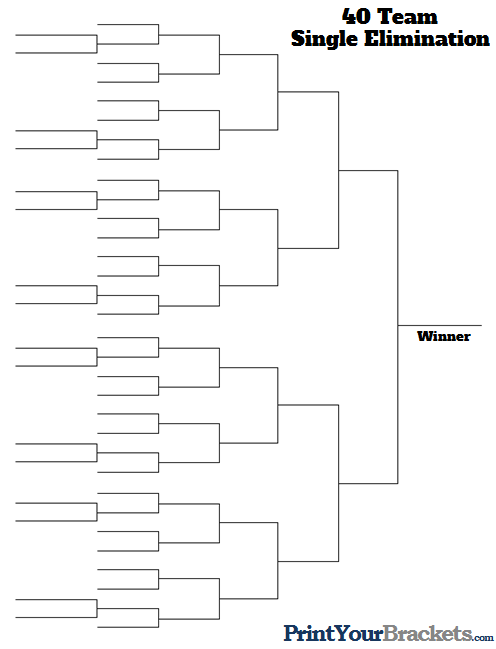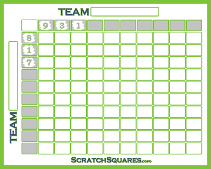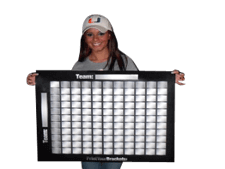40 Team Blind Draw
Single Elimination Tournament Bracket
Below you will find 2 different layouts for the 40 Team Bracket. The first bracket is a landscape print layout that runs from left to right and the second bracket is a portrait print layout that runs from both directions, meeting up in the center. Both of these brackets work exactly the same, the appearance is the only difference. If you click "Edit Title" you will be able to edit the heading before printing.
If you're looking to enter team names, dates, times, and locations of games we recommend using our Tournament Bracket Creator or our Excel Spreadsheet Brackets!


Watermarks on the Printable Versions will not appear when the bracket is printed.
If you have any troubles viewing or editing the bracket, simply make sure you are opening the file with Adobe Reader. If you do not have the latest version of this installed on your computer you can Download Adobe Reader Free.
| View 40 Team "Seeded" Bracket | View 64 Team Single Elimination |
| View 36 Team Single Elimination | View All Tournament Brackets |
| What is a Seeded Bracket? | What is a Blind Draw Bracket? |
How does a 40 Team Single Elimination Bracket work?
In a 40 team single elimination tournament, the teams compete in a bracket where each match is a knockout game. The winner of each game moves on to the next round and the loser is eliminated. The tournament continues until there is only one team remaining. That team is declared the overall winner.
Bracket Structure:
The 40 team single elimination bracket is made up of 6 different rounds. 16 teams will play in the first round and 14 teams will receive byes. When a bracket does not have exactly 2, 4, 8, 16, 32 ,64, or 128 teams, then there must be byes. Byes are awarded in the first round and only the first round.
First Round:
There will be 8 games in the first round. The first round matches will typically be the first game of the tournament, while teams that were on byes will be waiting for this game to be completed. Some games in the second round could have two teams that were both on byes. These games could run concurrent with the first round games. The winners of these matches advance to the next round, while the losers are eliminated from the tournament.
Subsequent Rounds:
The second round of all tournaments will always have 2, 4, 8, 16, 32 ,64, or 128 teams left and there will be no byes for the rest of the tournament. The tournament continues until there is only 1 team left.
Number of Games:
In a single elimination tournament, the number of games will always be 1 less than the number of teams. So, a 40 team single elimination tournament will have a total of 39 games.
Tiebreakers (if necessary):
In the event of a tie, there must be a tiebreaker put into place to determine a sole winner of each match. This format ensures that only one team from each match can advance to the next round, and a single loss results in elimination from the tournament. Tiebreaker rules can vary from each sport/game, so it is important to post clear tie-breaker rules before the start of the tournament.
Benefits of a Single Elimination Tournament:
Single elimination tournaments are straightforward and easy to understand. They can be completed relatively quickly, making them popular for various sports and competitions that are short on time. While single elimination tournaments have these benefits, it's important to note that they also have limitations, such as the potential for strong teams to be eliminated early due to a single bad performance. The choice of tournament format depends on the specific goals and nature of the competition.
Blind Draw vs Seeded
A blind draw bracket features teams that are randomly drawn and placed on the bracket in the order in which they are drawn. A seeded bracket is typically used when teams are ranked based on how well they finished during a season or a previous event. The single elimination brackets above are blind draw.




